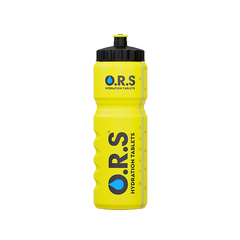Why Do Children Get Car Sick More Than Adults?

It’s the time of year when many families will be packing up the car and heading off on holiday for a week or two. Unfortunately, the journey can sometimes be spoiled by queasy and vomiting children. Feeling or being travel sick is very unpleasant, but most people tend to grow out of it in adolescence.
Why does travel sickness tend to affect children more? Here’s a look at the reasons and what you can do about it.
What causes car sickness?
Car sickness, also known as motion sickness, is thought to be caused by the mixed messages the brain is receiving while we are in transit. The inner ear, which is responsible for controlling balance, sends different signals to the brain to the ones that the eyes are receiving.
The conflicting messages confuse the brain and cause sensory overload, which leads to a queasy feeling and can result in vomiting. Other symptoms of motion sickness include dizziness, headache, sweating, and feeling cold. The child may also look pale, yawn frequently, and be restless and crabby.
Children are more likely to have this problem because they are too small or sitting too low down to see out of the car windows, and their eyes are telling them that they are stationary, while the organ in the inner ear that controls balance and motion (the vestibular system) is telling them that they are moving forwards.
How can you prevent car sickness?
The risk of car sickness can be lessened by ensuring that the child is sat high enough to see out of the car windows. This can be achieved with booster seats or child safety seats, provided they comply with the relevant height, age, and weight restrictions. If possible, place the child in the middle of the seat so they can see out of the windscreen.
Encourage your child to look out of the window by playing games such as spotting different types of road signs. Do not allow them to read or look at a screen in the car, but play music or audiobooks instead. Keeping children distracted and interacting with you will help them to look up and outwards rather than down.
Before setting off, have a light snack of bland food rather than anything too heavy, sugary, or spicy, as these foods are harder for the stomach to digest. Keeping the car windows open slightly to allow fresh air to circulate can help to reduce feelings of queasiness.
Plan regular breaks during a long journey and get out of the car for some fresh air and a drink of water to stay hydrated.
If your child is showing signs of sickness, stop the car straight away and let them lie down on the back seat. If they have vomited, encourage them to take small sips of water to settle the stomach and avoid dehydration. If they have lost a lot of fluids, adding an electrolyte tablet to the water will help them to recover more quickly.

